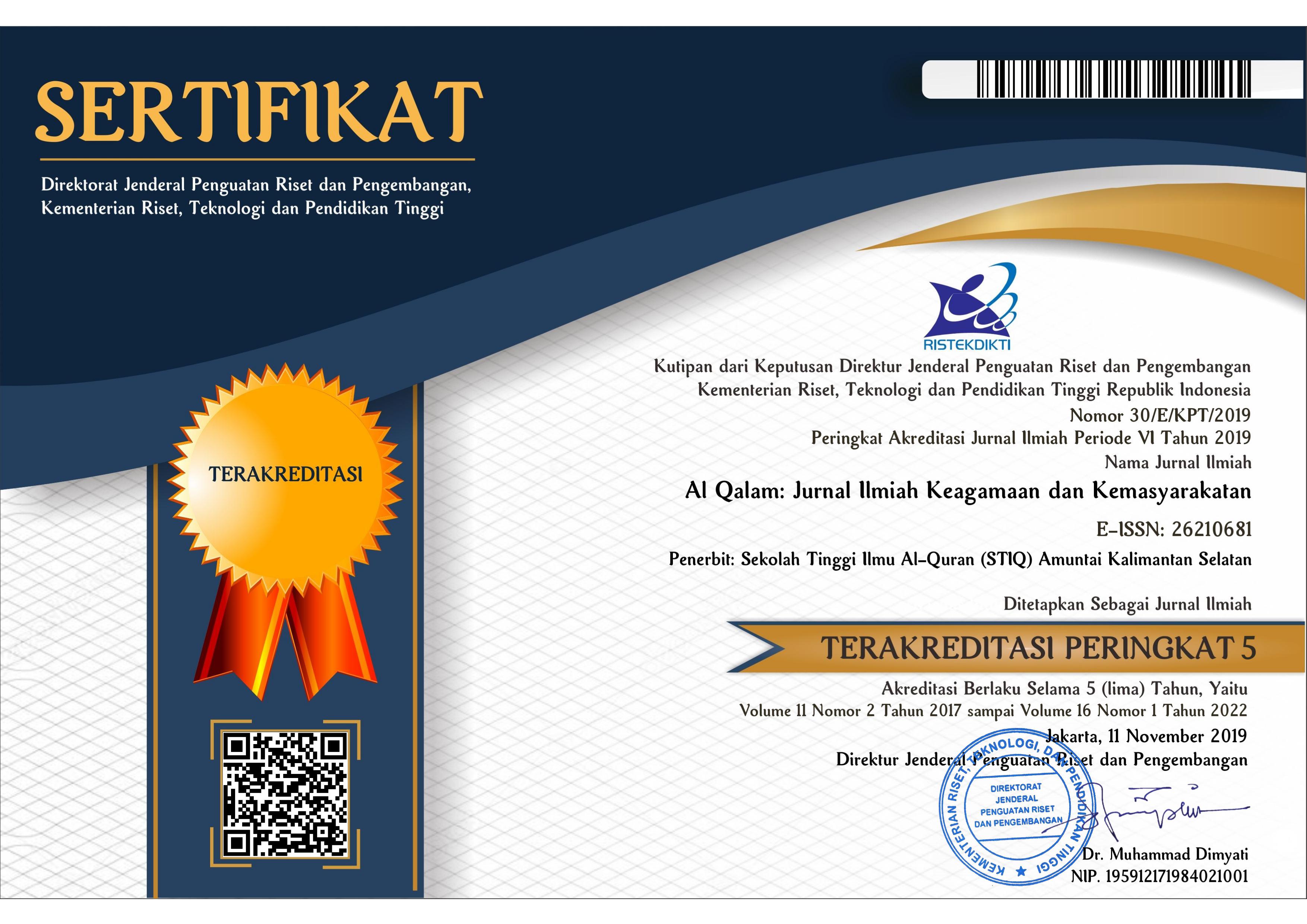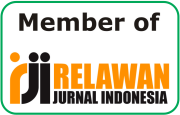ICT-Based Learning Management at Al-Hikmah Integrated Islamic High School, Maros District
Abstract
This study is motivated by the importance of technology-based learning management in the digital era, which presents challenges for schools in integrating ICT. The aim of this research is to analyze the planning, implementation, and evaluation of technology-based learning management at SMAS Islam Terpadu Al-Hikmah Maros Regency. This research uses a descriptive qualitative approach to illustrate the application of technology-based learning management at the school. Data were collected through observations, interviews, and documentation involving school principals, vice principals, teachers, staff, and students. The data were analyzed through reduction, presentation, and conclusion drawing. The results show that planning is conducted by identifying technological needs, planning learning strategies that integrate ICT, and developing ICT infrastructure, including devices and networks. Implementation involves infrastructure, using digital platforms, and providing training teachers to optimize technology in learning, including ICT-based exams. Evaluation is carried out through classroom observations, analysis of student learning outcomes, and evaluation meetings to gather feedback and formulate follow-up actions. In conclusion, this study contributes to the development of ICT-based education management, with the implication that school principals need to support technology development and training for educators, educators must be creative in using ICT, students need to be more independent, and parents are expected to support by providing devices and participating in school activities.
Keywords
Full Text:
PDFReferences
Anderson, Terry, dan Jon Dron. “Three Generations of Distance Education Technology.” The International Review of Research in Open and Distributed Learning 12, no. 3 (2011): 80–97.
Daryanto. Administrasi Pendidikan. Bandung: Alfabeta, 2013.
Daryanto. Manajemen Pendidikan. Yogyakarta: Gava Media, 2013.
Fullan, Michael. The New Meaning of Educational Change. 4th ed. New York: Teachers College Press, 2007.
Henderson, A. T., dan K. L. Mapp. A New Wave of Evidence: The Impact of School, Family, and Community Connections on Student Achievement. Southwest Educational Development Laboratory, 2002.
Hattie, John. Visible Learning: A Synthesis of Over 800 Meta-Analyses Relating to Achievement. London: Routledge, 2009.
Ilmiah, Citra Faridatul Nur, Maulidyah Zahra Galuh Pramesti, dan Indah Rohmatuz Zahro. “Perspektif Islam (Pendapat Ali Bin Abi Thalib) Tentang Pendidikan Anak.” JECER (Journal of Early Childhood Education and Research) 4, no. 2 (2023): 49–55.
Inom Nasution, et al. "Tantangan Kepala Sekolah dalam Implementasi Teknologi Pendidikan di Era Digital di Sekolah Nadrisatul Ikbar, JUPE." Jurnal Pendidikan Mandala (2021): 120–30.
Jonassen, David H. Computers as Mindtools for Schools: Engaging Critical Thinking. 2nd ed. Upper Saddle River: Prentice Hall, 2000.
Mayer, Richard E. The Cambridge Handbook of Multimedia Learning. Cambridge University Press, 2005.
Miles, Matthew B., dan A. Michael Huberman. Qualitative Data Analysis: An Expanded Sourcebook. 2nd ed. Thousand Oaks: SAGE Publications, 1994.
Mulyasa. Menjadi Kepala Sekolah Profesional. Bandung: Remaja Rosdakarya, 2007.
Noddings, Nel. The Challenge to Care in Schools: An Alternative Approach to Education. 2nd ed.New York: Teachers College Press, 2005.
Permendikbud No. 37 Tahun 2018 Tentang Literasi Digital.
Permendikbud No. 65 Tahun 2013 Tentang Standar Proses.
Prensky, Marc. “Digital Natives, Digital Immigrants.” On the Horizon 9, no. 5 (2001): 1–6.
Ridwan, H. “Evaluasi Pembelajaran Berbasis TIK di Sekolah Menengah.” Jurnal Pendidikan Teknologi 15, no. 2 (2020): 145–56.
Robbins, Stephen P., dan Mary Coulter. Management. 12th ed. Upper Saddle River: Prentice Hall, 2014.
Sartika, T. “Strategi Pembelajaran Berbasis TIK untuk Meningkatkan Kualitas Pembelajaran.” Jurnal Pendidikan Teknologi Informasi 8, no. 1 (2020): 34–45.
Schunk, Dale H., Paul R. Pintrich, dan Judith L. Meece. Motivation in Education: Theory, Research, and Applications. 3rd ed. Upper Saddle River: Pearson/Merrill Prentice Hall, 2008.
Selwyn, Neil. Education and Technology: Key Issues and Debates. London: Bloomsbury Publishing, 2016.
Stufflebeam, Daniel L. “The CIPP Model for Evaluation.” Dalam International Handbook of Educational Evaluation, diedit oleh T. Kellaghan dan D. L. Stufflebeam, 31–62. Dordrecht: Springer, 2003.
Sugiyono. Metode Penelitian Pendidikan: Pendekatan Kuantitatif, Kualitatif, dan R&D. Bandung: Alfabeta, 2016.
Suriansyah, Ahmad. "Pengembangan pembelajaran berbasis TIK (Proses dan Permasalahannya)." Paradigma 10, no. 2 (2019).
Undang-Undang No. 20 Tahun 2003 Tentang Sistem Pendidikan Nasional.Yusuf, M. “ICT in
Education: A Systematic Approach.” Education Studies (2011).
Zhao, Yong, dan Kenneth A. Frank. "Factors Affecting Technology Uses in Schools: An Ecological Perspective." American Educational Research Journal 40, no. 4 (2003): 807–40. https://doi.org/10.3102/00028312040004807.
DOI: http://dx.doi.org/10.35931/aq.v19i4.5289
Refbacks
- There are currently no refbacks.
Copyright (c) 2025 Nurqarirah Arifin, Mardhiah Hasan, Syamsuddin Syamsuddin, Andi Nirmayanthi, Aliman Aliman, Hijar Semi

This work is licensed under a Creative Commons Attribution 4.0 International License.
Al Qalam: Jurnal Ilmiah Keagamaan dan Kemasyarakatan
index by:
Publish by:
Sekolah Tinggi Ilmu Al-Qur'an Amuntai
Contact us:
Address: Jl. Rakha Pakapuran, Amuntai Utara
Kabupaten : Hulu Sungai Utara
Kode Pos : 71471
Provinsi : Kalimantan Selatan
Telephone : 085251613000
Email: hafizhihusinsungkar@gmail.com

This work is licensed under a Creative Commons Attribution 4.0 International License


